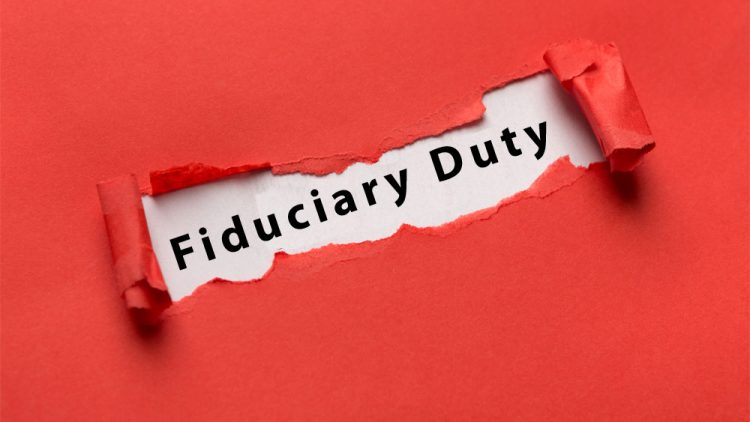What is Fiduciary Responsibility?
A fiduciary duty exists in law when a person or entity places trust, expertise in acting on behalf of the client. The fiduciary must knowingly accept that trust and confidence.
Breaches in Fiduciary Duty
An employee may have a fiduciary duty to an employer. These expectations may not be labeled as fiduciary duties but may be spelled out in an employee handbook or contract clause. Abreach of fiduciary duty occurs when a principal fails to act responsibly in the best interests of a client.
Consider the following essential elements:
Duty
Many professionals are obligated, legally, and ethically, to conduct their businesses honestly. In law, the plaintiff must show there was a fiduciary duty accepted as such, ideally in writing.
Breach
The plaintiff must show that a breach has occurred. The type of breach varies in every case. For example, if an accountant gets sloppy in filling out a client’s tax returns, the accountant may be guilty of a breach of fiduciary duty. If the client was did not provide the right info, there is no breach.
Damages
The plaintiff must show that the breach of trust caused damage so it is important to be specific regarding this.
Causation
This demonstrates any damages incurred by the plaintiff were directly linked with the actions taken in breach of fiduciary duty.
Trustee/Beneficiary
A single parent with young children might write a will that creates a trust to administer the assets that they will inherit in the event that the parent dies while the children are still minors.
With a trustee/beneficiary duty, the fiduciary has legal ownership of the property and controls the assets held in the name of the trust.
Guardian/Ward
In a guardian/ward relationship, the legal guardianship of a minor is transferred to an appointed adult. The guardian, as the fiduciary, is tasked with ensuring that the minor child or ward has appropriate care.
Agent/Principal
A more generic example of fiduciary duty lies in the agent/principal relationship. Any person, corporation, partnership, or government agency might be called upon to act as a principal or agent. A similar relationship exists between personal investors and the fund managers they select to manage their assets.
Attorney/Client
The agreement between an attorney and a client is arguably one of the most stringent of fiduciary relationships.
The U.S. Supreme Court has stated that the highest level of trust and confidence must exist between an attorney and a client and an attorney, as a fiduciary, must act in complete fairness, loyalty, and fidelity in every action taken on behalf of the client.
Attorneys are held liable for breaches of their fiduciary duties by the client and are accountable to the court in which that client is represented when a breach occurs.
Real Estate Expert Witness Services by Craig Cherney, Esq.
Craig Cherney is a trusted client advisor and a sought after real estate lawyer and expert witness who is hired by the nation’s top Real Estate Litigation Attorneys to help resolve their litigated real property matters. Craig has appeared as a testifying expert witness before judges and juries in California, Arizona, Nevada and other jurisdictions across the country. Craig Cherney, Esq. Expert Witness Real Estate. 480-399-2342. If you are litigating an easement case, Craig Cherney might be able to help you advance and win your case.
